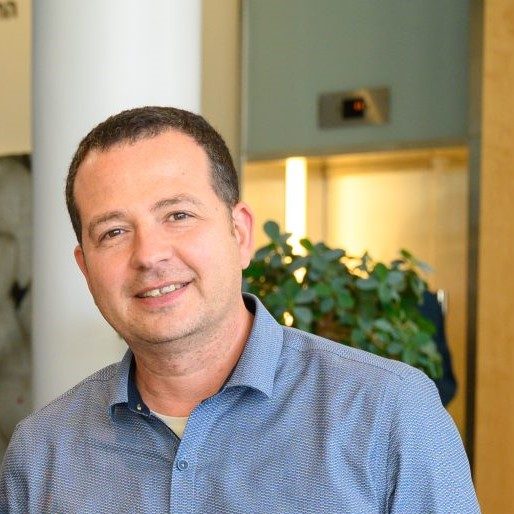FACULTY
Researchers

Boris Slobodin, PhD, Senior Lecturer

The Slobodin lab, at the faculty of Medicine, studies a condition termed “Global Transcription Stress” or, shortly, GTS. It is characterized by a generally reduced rate of transcription, which is not restricted to any specific genetic locus or region.
In the previous studies, we found that multiple situations can potentially lead to GTS. For example, DNA damage that triggers a chain of repair events typically results in a significant slow-down of the speed of RNA polymerase II, thus reducing the ability to create new transcripts. Moreover, certain chemotherapeutic drugs, such as those based on the natural compound Camptothecin, reduce the dynamics of the transcription process, leading to transcriptional insufficiency. Based on our observations, we suspect that GTS is integral to multiple physiological conditions and can be triggered by additional factors.
Studying GTS, we are asking many exciting and complex questions, some of which are detailed below: First, we would like to uncover additional conditions that trigger GTS. When does it happen? How long does it take? Second, we aim to understand how animal cells survive this condition. Based on the previous observations, we know that cells may survive prolonged periods of insufficient transcription. How do they survive when their ability to express genes is insufficient? Third, we would like to gain a deep insight into how cells regulate their gene expression during GTS, both at the RNA and protein levels.
We address these and additional questions by combining biochemical, genomic and molecular approaches. We have already achieved a considerable understanding of the cellular GTS response, and are striving to further deepen our knowledge of this fascinating condition.




